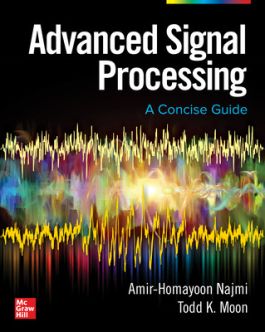Advanced Signal Processing: A Concise Guide
Step 1. Download Adobe Digital Editions Both PC and Mac users will need to download Adobe Digital Editions to access their eBook. You can download Adobe Digital Editions at Adobe's website here.
Step 2. Register an Adobe ID if you do not already have one. (This step is optional, but allows you to open the file on multiple devices) Visit account.Adobe.com to register your Adobe account.
Step 3: Authorize Adobe Digital Editions using your Adobe ID. In Adobe Digital Editions, go to the Help menu. Choose “Authorize Computer.”
Step 4: Open your file with Adobe Digital Editions. Once you’ve linked your Adobe Digital Editions with your Adobe ID, you should be able to access your eBook on any device which supports Adobe Digital Editions and is authorized with your ID. If your eBook does not open in Adobe Digital Editions upon download, please contact customer service
Publisher's Note: Products purchased from Third Party sellers are not guaranteed by the publisher for quality, authenticity, or access to any online entitlements included with the product.
A comprehensive introduction to the mathematical principles and algorithms in statistical signal processing and modern neural networks.
This text is an expanded version of a graduate course on advanced signal processing at the Johns Hopkins University Whiting school program for professionals with students from electrical engineering, physics, computer and data science, and mathematics backgrounds. It covers the theory underlying applications in statistical signal processing including spectral estimation, linear prediction, adaptive filters, and optimal processing of uniform spatial arrays. Unique among books on the subject, it also includes a comprehensive introduction to modern neural networks with examples in time series and image classification.
Coverage includes:
- Mathematical structures of signal spaces and matrix factorizations
- linear time-invariant systems and transforms
- Least squares filters
- Random variables, estimation theory, and random processes
- Spectral estimation and autoregressive signal models
- linear prediction and adaptive filters
- Optimal processing of linear arrays
- Neural networks

